External links
| Facilities | ||
|---|---|---|
| Divisions | ||
| Units | ||
| Medals | ||
| Events (LAPD history) | ||
| Corruption/ misconduct | ||
| Organizations | ||
| Related | ||
| By topic | ||
|---|---|---|
| Government | ||
| Predecessor | Police and Fire Protective League |
|---|---|
| Founded | 1923 |
| Headquarters | 1308 West Eighth St. Los Angeles, California 90017 |
| Location | |
Members | 9,900 |
Key people |
|
| Publication | Thin Blue Line |
| Affiliations |
|
| Website | www |
The Los Angeles Police Protective League (LAPPL) is the police union representing Los Angeles Police Department (LAPD) officers up to the rank of lieutenant. [1] LAPPL has a membership of 9,900 sworn officers. [2]
The LAPPL serves to protect the interests of LAPD officers through lobbying, legislative and legal advocacy, political action and education. LAPPL has long supported more traditional law-and-order policies. [3] As of 2020, LAPPL is currently led by Craig Lally, President, and Jerretta Sandoz, Vice President. [4]
The predecessor to LAPPL, Police and Fire Protective League, was formed in 1923, to protect the combined pension system for the Los Angeles Police and Fire Departments. [2] In 1973, the Police and Fire Protective League was separated into two unions, the United Firefighters of Los Angeles City, and LAPPL. [2]
In 2009, the LAPPL launched a free daily electronic news clipping service that summarizes the law enforcement and relevant government news of the day. LAPPL also publishes an official blog featuring information and commentary from LAPPL leadership, as well as Thin Blue Line, a monthly e-magazine.
That same year, LAPPL partnered with Association for Los Angeles Deputy Sheriffs (ALADS), the LASD union, to form a political action committee (PAC) called the California Law and Order Independent Expenditure Committee. [5] [6]
As of 2020, LAPPL is led by Craig Lally, President, and Jerretta Sandoz, Vice President. [4] Craig Lally was named as a "problem officer" in the Christopher Commission, an independent panel that proposed reforms in the wake of the 1991 police beating of Rodney King. [7] The officers were flagged by the commission to illustrate the problem of excessive force in the LAPD. [7]
In May 2017, the LAPD union backed Measure C, which provides police officers accused of wrongdoing with the flexibility to seek resolution through an all-civilian discipline board, in addition to a traditional board comprising two command officers and one civilian examiner. [8] The measure, despite opposition from the American Civil Liberties Union for its purported weakening of LAPD's disciplinary system, was passed by Los Angeles city voters. [9] [10] The Los Angeles Times editorial board also endorsed a "no" vote for the measure, characterizing the measure as a "union ploy to go soft on police misconduct." [11] [12]
In 2018, LAPPL defended the actions of Kevin Ferguson, an LAPD officer who had fired his gun at teenagers in Anaheim while he was off-duty. [13] The Los Angeles Board of Police Commissioners found that Ferguson actions violated LAPD policy, and Ferguson subsequently resigned. [13]
Between 2010 and 2020, LAPPL has directly contributed over $100,000 to Los Angeles City Council candidates, while its independent expenditure committees, which are not subject to donation limits, have spent millions of dollars. [14] During the 2013 Los Angeles mayoral election, LAPPL-sponsored committees spent over $1.5 million backing Eric Garcetti's mayoral opponent. [14]
In the lead-up to the March 2020 Los Angeles County District Attorney election, LAPPL contributed over US$1,000,000(equivalent to $Error when using {{ Inflation }}: NaN/calculation error please notify Template talk:Inflation. in 2021) to two separate political action committees in order to defeat George Gascón, a reform-minded candidate running for the office of Los Angeles County District Attorney. [15] During the election, law enforcement unions, including LAPPL, had instead contributed over 75% of the $2.2 million raised by incumbent District Attorney Jackie Lacey. [16] Lacey ultimately lost the race, despite broad financial support from law enforcement unions. [17]
As of June 2020, 11 of the 15 incumbent City Council members have received LAPPL donations. [18] Opponents have argued that such campaign donations distorted elected officials' decision-making, and has prompted incumbent council members like David Ryu to return these campaign contributions back to LAPPL. [14]
Amid the ongoing COVID-19 recession and a projected budget deficit that the city of Los Angeles faces, LAPPL argued for a continued need for the city government to adopt a FY 2020–2021 budget that allocates $1.857 billion to LAPD, the single largest line item in the city's proposed budget. [19] [20] The prior year, in 2019, LAPPL had negotiated a 4.8% pay raise for LAPD officers effective July 1, 2020, in addition to an "education bonus" payout of $41 million (equivalent to $43.45 million in 2021) to LAPD officers with college degrees, effective April 2020. [21] [22] [23] The total impact of these negotiated pay raises was expected to add $123 million to the city's budget, contributing to the forecasted reversal of the city's projected revenue surplus into deficits "between $200 and $400 million in each of the next four years." [24] [25]
In the wake of the George Floyd protests, the size of LAPD's planned budget has received significant widespread scrutiny and public outcry. [26] [21] On June 5, 2020, Garcetti publicly announced his intention to reduce LAPD's budget by up to $150 million, a reversal from his prior budget, which had proposed an increase of 7% to LAPD's budget, including the aforementioned package of negotiated raises and bonuses for LAPD officers. [27] The following day, LAPPL officials denounced Garcetti's plans to cut LAPD spending and characterized him as "unstable," with the LAPPL vice president Jerretta Sandoz characterizing Garcetti's announcement as "one of the most craven, disingenuous political sleights of hands we have seen in some time." [25] [27] LAPPL officials also announced they had no intention of renegotiating the pay raises. [25]
LAPPL is affiliated with the National Association of Police Organizations (APO), the California Coalition of Law Enforcement Associations (CCLEA), Southern California Alliance of Law Enforcement (SCALE), and United Coalition of Public Safety (UCOPS). [28] It is also informally affiliated with BIG 11, representing the 11 largest sworn law enforcement associations in California, and with BIG 50, comprising the 50 largest law enforcement associations in the United States. [28]
LAPPL is a 501(c) organization. In 2019, the union had US$11 million in revenues, and US$16 million in assets. [29] LAPPL also runs a political action committee dubbed the Los Angeles Police Protective League Issues PAC. [30]
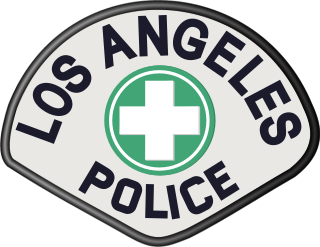
The Los Angeles Police Department (LAPD), officially known as the City of Los Angeles Police Department, is the municipal police department of Los Angeles, California. With 9,974 police officers and 3,000 civilian staff, it is the third-largest municipal police department in the United States, after the New York City Police Department and the Chicago Police Department.
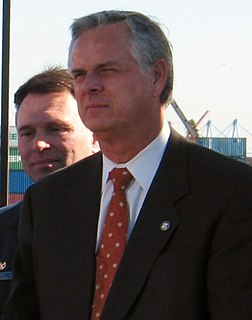
James Kenneth Hahn is an American lawyer and politician. A Democrat, Hahn was elected the 40th mayor of Los Angeles in 2001. He served until 2005, at which time he was defeated in his bid for re-election. Prior to his term as Mayor, Hahn served in several other capacities for the city of Los Angeles, including deputy city attorney (1975–1979), city controller (1981–1985) and city attorney (1985–2001). Hahn is the only individual in the city's history to have been elected to all three citywide offices. He is currently a sitting judge on the Los Angeles County Superior Court.

The 1992 Los Angeles riots, sometimes called the 1992 Los Angeles uprising and the Los Angeles Race Riots, were a series of riots and civil disturbances that occurred in Los Angeles County in April and May 1992. Unrest began in South Central Los Angeles on April 29, after a jury acquitted four officers of the Los Angeles Police Department (LAPD) charged with using excessive force in the arrest and beating of Rodney King. This incident had been videotaped and widely shown in television broadcasts.

Stephen Lawrence Cooley is an American politician and prosecutor. He was the Los Angeles County District Attorney from 2000 to 2012. Cooley was re-elected in 2004 and again in 2008.

Eric Michael Garcetti is an American politician and diplomat serving as the 42nd and current mayor of Los Angeles since 2013. A member of the Democratic Party, he was first elected in the 2013 election, and reelected in 2017. A former member of the Los Angeles City Council, Garcetti served as City Council President from 2006 to 2012. He is the city's first elected Jewish mayor, and its second consecutive Mexican American mayor. He was elected as the youngest mayor in over 100 years, having been 42 at the time of his inauguration. In July 2021, President Biden nominated Garcetti as the United States Ambassador to India.
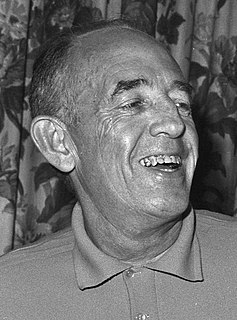
William Henry Parker III was an American law enforcement officer who was Chief of the Los Angeles Police Department (LAPD) from 1950 to 1966. To date, he is the longest-serving LAPD police chief. Parker has been called "Los Angeles' greatest and most controversial chief of police". The former headquarters of the LAPD, the Parker Center, was named after him.
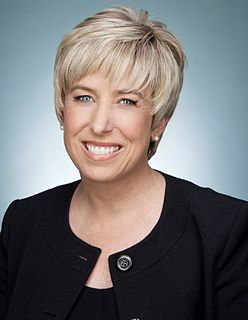
Wendy Jane Greuel is an American politician. She served as Los Angeles City Controller from 2009–13. Greuel was the second woman elected to citywide office in Los Angeles, after her predecessor Laura Chick.

The Metropolitan Division, also known as Metro, is an elite division of the Los Angeles Police Department (LAPD). The Metro Division, which also contains LAPD's Special Weapons and Tactics (SWAT) team, contains line platoons of specially-trained police officers. It is tasked with numerous crime-fighting duties including solving major crimes, dignitary protection, surveillance, providing counter-terrorism details and attending high-risk barricaded situations, such as a hostage situation.

California Proposition 6, also known as the Safe Neighborhoods Act and The Runner Initiative, is a statutory initiative that appeared on the November 2008 ballot in California. This proposition was rejected by voters on November 4 of that year.

George Gascón is an American attorney and former police officer who is the district attorney of Los Angeles County. Gascón previously served as the district attorney of San Francisco from 2011 to 2019, as an assistant chief of police for the LAPD, and Chief of Police in Mesa, Arizona and San Francisco.
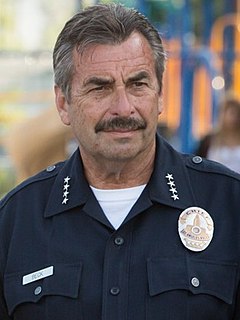
Charles Lloyd Beck is a retired police officer, ending his career as the Chief of the Los Angeles Police Department (LAPD). A veteran of the department with over four decades as an officer, he is known for commanding and rehabilitating the Rampart Division after the Rampart scandal; and for technology enhancements during his time as Chief of Detectives. He agreed to be interim Superintendent of Police in Chicago in late 2019 while the city searches nationwide for a replacement for retiring Eddie Johnson. Beck took the helm of the Chicago Police Department on December 2, 2019 after Johnson was fired. On April 15, 2020, Beck stepped down and was replaced by former Dallas Police Department Chief David Brown, who had been nominated by Lightfoot to serve as permanent Superintendent. After his retirement he rejoined the Reserve Corps as a Reserve Police Officer and is assigned to the Office Of The Chief Of Police.

James Thurman Butts Jr. is an American politician, currently serving as the mayor of Inglewood, California. He rose through the ranks of law enforcement in Inglewood during the 1970s and 1980s, eventually becoming a Deputy Chief. He then worked as the Chief of Police in Santa Monica, California from 1991 to 2006. Butts then took a public safety position with Los Angeles World Airports in 2006. He was elected mayor of Inglewood in 2010 and re-elected in 2014 with an 84% vote. He led efforts to renovate and reopen The Forum and develop a plan for SoFi Stadium in Hollywood Park.
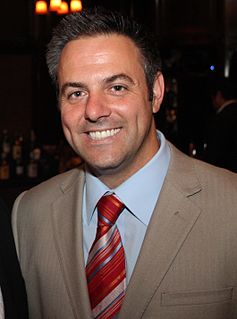
Joe Buscaino is an American politician and former police officer. He has served on the Los Angeles City Council as the representative of the 15th district since 2012. From 2020 to 2021, Buscaino served as President pro tempore of the council. A member of the Democratic Party, Buscaino is a candidate in the 2022 Los Angeles mayoral election.

The government of Los Angeles operates as a charter city under the charter of the City of Los Angeles. The elected government is composed of the Los Angeles City Council with 15 city council districts and the mayor of Los Angeles, which operate under a mayor–council government, as well as several other elective offices. The current mayor is Eric Garcetti, the current city attorney is Mike Feuer and the current city controller is Ron Galperin.

Jacquelyn Phillips Lacey is an American politician who served as the District Attorney of Los Angeles County from December 3, 2012 to December 7, 2020. Lacey is the first woman, and first African-American, to serve as LA District Attorney since the office was created in 1850. As a district attorney, she has been described as part of the "tough-on-crime" movement.

Ezell Ford, a 25-year-old African-American man, died from multiple gunshot wounds after being shot by Los Angeles Police Department (LAPD) officers in Florence, Los Angeles, California on August 11, 2014. In the weeks and months that followed, Ford's shooting triggered multiple demonstrations and a lawsuit by Ford's family claiming $75 million in damages.

Michel Rey Moore is an American police officer and Chief of the Los Angeles Police Department (LAPD) since 2018.

The 2022 Los Angeles mayoral election will take place on November 8, 2022, to elect the Mayor of Los Angeles. The primary for this election, a top-two primary by California law, will take place on June 7, 2022. Incumbent Mayor Eric Garcetti will be ineligible to seek a third term due to term limits, but is serving an extended second term due to a law moving election dates.
The Association for Los Angeles Deputy Sheriffs (ALADS) is one of two police unions for the Los Angeles County Sheriff's Department (LASD) officers, the other being the Los Angeles Sheriff's Professional Association (LASPA).

"Defund the police" is a slogan that supports divesting funds from police departments and reallocating them to non-policing forms of public safety and community support, such as social services, youth services, housing, education, healthcare and other community resources. Activists who use the phrase may do so with varying intentions; some seek modest reductions, while others argue for full divestment as a step toward the abolition of contemporary police services. Activists who support the defunding of police departments often argue that investing in community programs could provide a better crime deterrent for communities; funds would go toward addressing social issues, like poverty, homelessness, and mental disorders. Police abolitionists call for replacing existing police forces with other systems of public safety, like housing, employment, community health, education, and other programs.